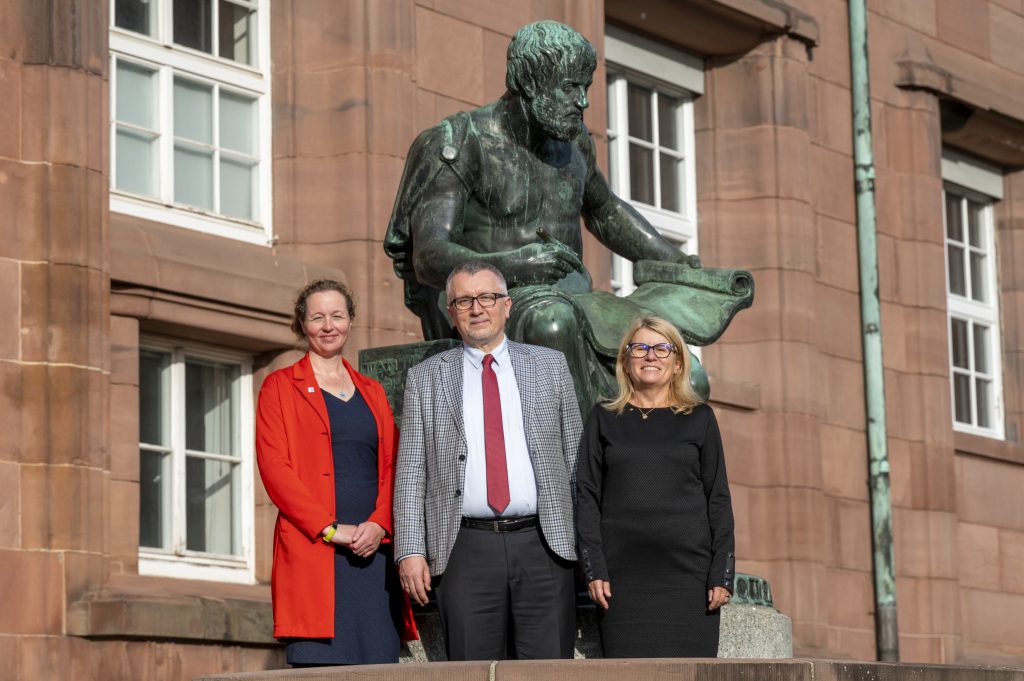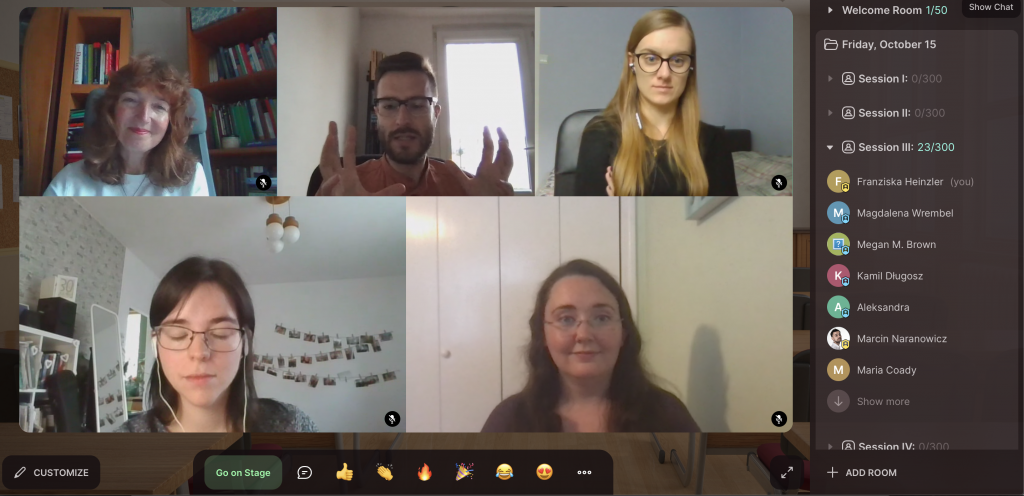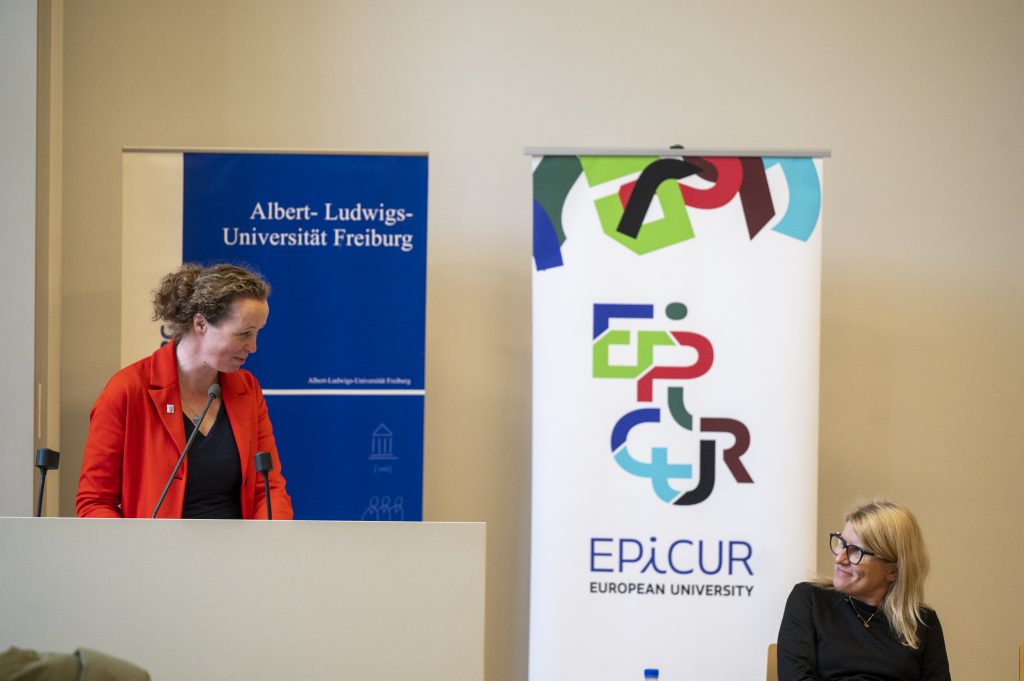
EPICUR’s first EPICamp on “Mobility, Migration, Multilingualism” on October 15/16, 2021 was a great kick-off for this new, interactive format. Organised by the Universities of Freiburg, Poznán and Strasbourg, more than 80 Researchers from all across Europe and beyond had the opportunity to exchange and network in this virtual conference. With a broad variety of participants from different disciplines and fields (including non-university partners), leading professors in their respective research areas, as well as aspiring Early Career researchers on board, the event came to life.
Lea von Berg, PhD student in German Medieval Studies at the University of Freiburg, says that she was “positively surprised by the wide range and the variety of perspectives represented in the programme.” Lea particularly remembers the session “Knowledge in Motion: Study Abroad & Mobility”, which she says used an effective format combining short keynote speeches and an enriching follow-up discussion, displaying what kind of research is done on this subject by researchers across Europe (and beyond).

Imene Abdellaoui, researcher at the ILLE Laboratory of the Upper Alsace University in Mulhouse, who recently received her PhD in language, literature and civilisation, contributed as a speaker in the session on “Bilingualism, Migration and Identity”. She shares similar positive experiences: With speakers from different disciplines and institutions “not only their work and thoughts were shared, but inspirations for future research were generated as well”, she points out. Furthermore, in her opinion, the goal of providing an opportunity for open discussion and fruitful networking, succeeded: “Participants got the opportunity to know about each other’s research interests, approaches, and perspectives. I have really appreciated the debates after each presentation, and I wished the discussions would never come to an end, very fascinating and thought-provoking ideas were shared.” In addition, she is optimistic that “participating and sharing within this project [EPICUR Research] will help young researchers to express their (…) projects, to receive valuable feedback from researchers and experts either belonging to the same discipline or to others, and acquire new perspectives.”
With more than 80 active participants and 15-30 attendees per session (15 sessions in total), the organisation team is very happy about the outcome of this first ever EPICamp. Open research chats during the EPICamp were very well received by the participants and emphasized – among other things – the need to further expand and strengthen the cooperation between different disciplines. Many Early Career Researchers ECRs said they once more realized – during the EPICamp – that transdisciplinary research, networking and joint projects are crucial to gain a new understanding of future research. ‘The involvement of non-University partners in academia also plays an important role in order to enable low-threshold access between society and Universities. EPICUR is fostering this connection by involving society in research processes, data collection and the communication about it.

The visit of our EPICUR-colleagues from the University of Poznán in Poland, including Prof. Bogumila Kaniewska, rector of the Adam Mickiewicz University in Poznán, was a great honor and fruitful exchange that resolved in an invitation for the Freiburg EPICUR team to Poznán in November.
In their joint Keynote speech, HM Prof. Kaniewska and Prof. Kleinschmit, VP for Internationalization and Sustainability at the University of Freiburg, addressed the need for more European collaboration on the big societal issues. Prof. Kaniewska strongly pointed out that Poland has and still needs a permanent place within Europe. In addition, tackling challenges like migration, the keynote made clear that Universities have a great responsibility in seeing migration as an opportunity, not as a threat.
The 3rd EPICamp on “European Identities/Collective Identities” on Jan21/22, 2022 (organised by the University of Upper Alsace, Mulhouse).








